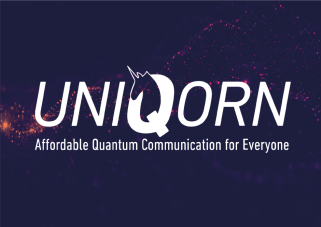
Strategic Advisory Board (SAB)
The academic and industry experts of the SAB provide advice on the Quantum Flagship strategic decisions.
The Strategic Advisory Board (SAB) provides advice for strategic decision-making to the Quantum Flagship, with long-term impact across the whole initiative. The SAB steers the preparation of the Quantum Flagship’s Strategic Agendas. The SAB also designed Key Performance Indicators (KPIs) to monitor the Flagship’s progress towards its main goals, both in research and innovation and in non-technical areas, such as education and outreach. These KPIs are measured and evaluated yearly under the SAB’s guidance.
The SAB convenes on a quarterly basis. You can find the list of SAB members in the official European Commission announcement with more information below. The respective chairs and deputy chairs of the Quantum Coordination Board (QCB), the Quantum Community Network (QCN) and the current CSA report to the SAB and attend meetings as observers.
Members of the SAB
Jürgen Mlynek studied physics at the TU Hannover and the École Polytechnique in Paris. He became a professor in experimental physics at the University of Constance. After 10 years of researching and teaching in the field of experimental quantum optics, atomic physics and surface physics, he served as Vice-President of the German Research Foundation (DFG) from 1996 to 2001. In September 2000 he became President of the Humboldt University Berlin, which he developed into one of Germany's leading universities. In 2005 he was elected as president of the Helmholtz Association of German Research Centers, the umbrella organisation of the national laboratories in Germany, where he served until 2015. Mlynek has received numerous science and research prizes and was awarded the Officer’s Cross of the Order of Merit of the Federal Republic of Germany in 2010.
Eleni Diamanti is research director of the French National Research Center (CNRS) at the LIP6 laboratory of Sorbonne University in Paris. She received her Diploma in Electrical and Computer Engineering from the National Technical University of Athens in 2000 and her PhD in Electrical Engineering from Stanford University in 2006. She then worked as a Marie Curie postdoctoral researcher at the Institute of Optics Graduate School in Palaiseau before joining the CNRS in 2009. Her research focuses on experimental quantum cryptography and communication, and on the development of photonic resources and applications for quantum networks. She is a recipient of a European Research Council Starting Grant, coordinator of the Paris Centre for Quantum Technologies, and was awarded the CNRS silver and innovation medals in 2024. Diamanti is actively involved in multiple European initiatives on quantum technologies and serves on several advisory and project coordinations boards. She is also cofounder and scientific advisor of the start-up company Welinq that specializes in quantum interconnect technology.
Please find the full list of SAB members here.


